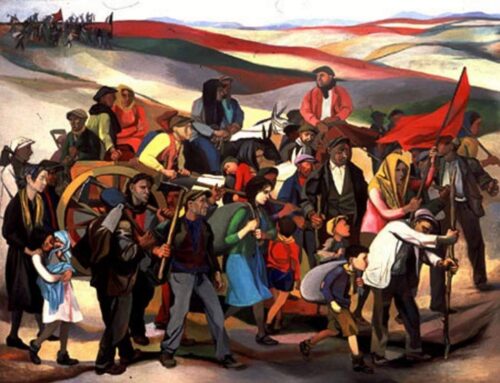Articolo originale tratto da “Le Scienze”, Novembre 2018 Rielaborato da Alicia Altini, Martina Mehmeti, Giulia Zoffoli, Kevin Romano, Emma Di Cristo, Giada Bissoni, Vilma Shabani
Alcuni ricercatori sostengono che ci sia un legame tra il cibo e il proprio gruppo sanguigno. Il nostro sangue è, in effetti classificato in vari gruppi a seconda di quali le molecole sono legate ad una proteina, chiamata antigene H. Se il sangue è di gruppo A una certa molecola è legata a quella proteina, se è B ce n’è un’altra ì, se è AB ci sono entrambe e se è 0 nessuna. Secondo Peter D’Adamo, noto ricercatore della medicina naturopata, il gruppo sanguigno contiene una sorta di ricordo codificato della dieta che seguivano gli esseri umani nel momento in cui quel gruppo sanguigno è apparso.
Quindi la persona di gruppo 0 dovrebbe mangiare preferibilmente carne, invece quelli di gruppo A dovrebbero prevalentemente mangiare vegetali e pochi prodotti animali, la persona di gruppo B dovrebbe consumare latte e latticini. Il gruppo AB è un mix tra A e B. Per verificare questa ipotesi, nel 2018, un migliaio di persone sovrappeso sono state sottoposte ad un esperimento per cui è stato misurato peso, girovita, pressione, colesterolo, trigliceridi e così via. Dopo aver analizzato che cosa mangiavano abitualmente i soggetti, i ricercatori hanno spiegato loro come alimentarsi correttamente, che cosa evitare e che cosa mangiare preferibilmente. Chiarendo loro che ogni gruppo ha alimenti favoriti, alimenti neutri e altri da evitare. Per sei mesi i partecipanti hanno compilato un questionario per descrivere che cosa mangiavano durante il giorno, e alla fine hanno rifatto le varie misurazioni. Una persona di gruppo 0 che segue una dieta da gruppo 0 dovrebbe avere parametri migliori di un gruppo 0 che mangia come un gruppo B, e lo stesso per tutti gli altri gruppi. I risultati? I miglioramenti, realmente riscontrati, erano indipendenti dal gruppo sanguigno, ma dovuti al fatto che i partecipanti hanno ridotto il consumo di cibi confezionati, ricchi di conservanti e bevande zuccherate e aumentato la varietà di cibi freschi. I ricercatori hanno concluso che il gruppo sanguigno non pare avere alcun legame con la nostra dieta.
3
Blood does not do the diet
Taken from “Sciences”, November 2018 Made by: Alicia Altini, Martina Mehmeti, Giulia Zoffoli, Kevin Romano.
Some researchers claim that there is a link between food and one’s blood group. Our blood is in fact classified into various groups depending on which molecules are bound to a protein called antigen H. If the blood and group to A certain molecule is bound to that protein, if it is B there is another one i, if it is AB there are both and if it is 0 none. According to Peter D’Adamo, a well-known researcher in naturopathic medicine, the blood group contains a sort of codified memory of the diet that followed humans when that blood group appeared. So, group person 0 should preferably eat meat, whereas group A should mainly eat vegetables and few animals’ products, group B should consume milk and dairy products. The AB group is a mix between A and B. To test this hypothesis, in 2018, a thousand overweight people were subjected to an experiment for which however was measured, waist size, pressure, cholesterol, triglycerides and so on. After analysing what the subject habitually eats, the researches explained to them how to eat properly, what to avoid and what to eat, preferably. Clarifying that each group has favourite food, neutral and other food do avoid. For six months the participants filled out a questionnaire to describe what they were eating during the day, and at the hay they redid the various measurements. A group 0 person who follows a group 0 diet should have better parameters than a group 0 who eats as a group B, and the same for all the groups. The results? The improvements, actually found, were independent of the blood group, but due to the fact that the participants reduced the consumption of packaged foods, rich in preservatives and sugary drinks and increased the variety of fresh food. The researchers concluded that the blood group does not seem to have any connection our diet.







